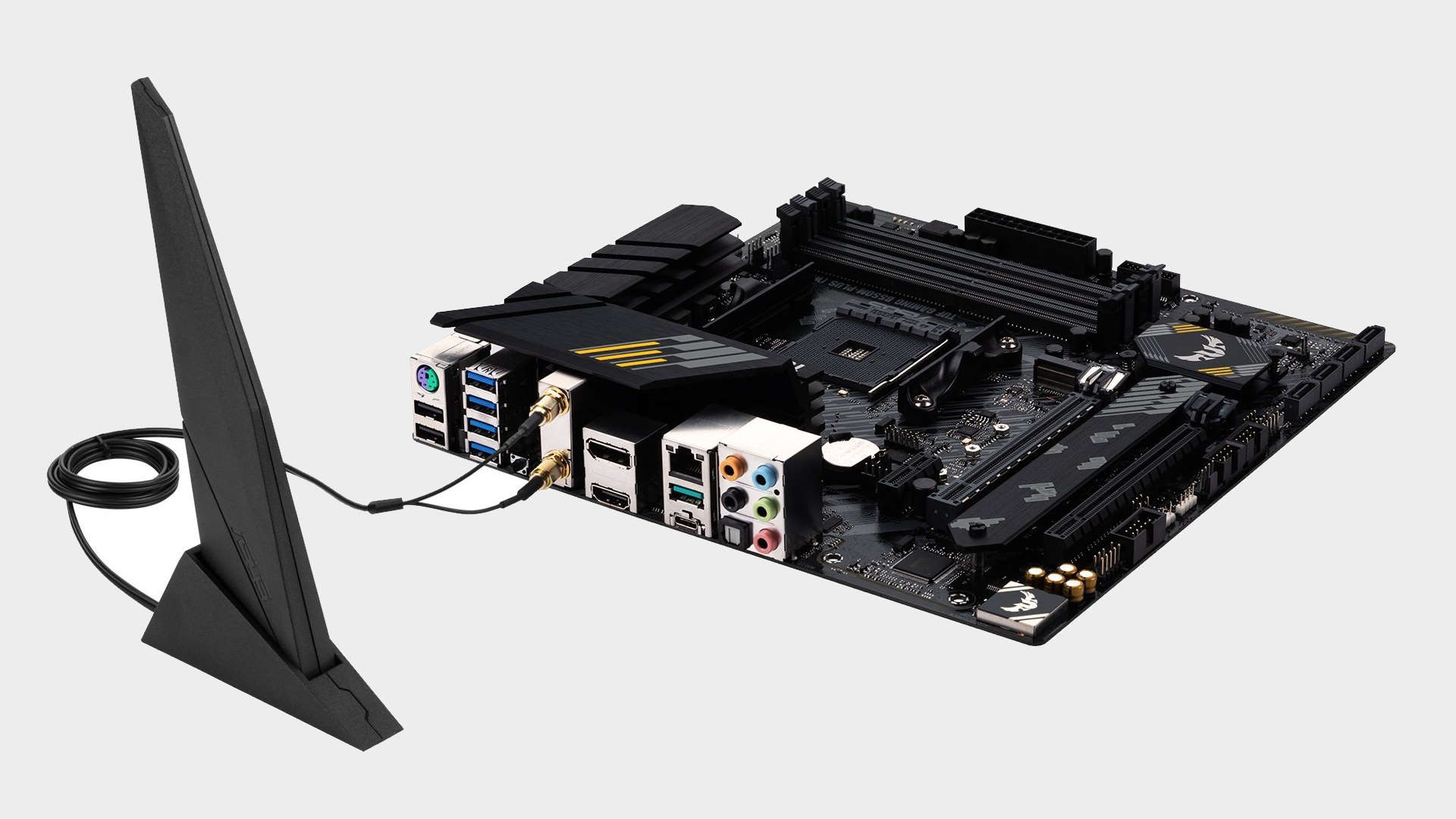Our Verdict
Asus' Micro-ATX TUF looks like all the motherboard you need for an affordable AMD Ryzen gaming rig, but mediocre performance spoils an otherwise attractive proposition.
For
- Competitively priced
- Decent all-round feature set
- Good overclocking headroom
Against
- Only four SATA ports
- Poor stock clocked performance
- Relatively limited bandwidth to peripherals
PC Gamer's got your back
AMD's mainstream Ryzen chipset is here and the Asus TUF Gaming B550M-Plus Wi-Fi wants to be all the mobo you desire. But what motherboard features do you actually need for a decent, up-to-date, no-nonsense gaming rig? You know, one that majors on pumping out plenty of frames rather than pretty lights? PCI Express Gen 4 for your graphics card? Check. The same for your SSD? Affirmative. Support for not only AMD’s latest Ryzen 3000 series CPUs but also its next-gen chips based on the Zen 3 architecture. Yep. A choice of both wireless and wired high performance networking. Uh huh. Maybe some high-speed USB-C connectivity for good measure. Yes please.
Chipset - AMD B550
Socket - AM4
CPU compatibility - AMD Ryzen 3000
Form factor - Micro-ATX
Expansion slots - 1x PCIe 3.0 x16, 1x PCIe 3.0 x4
Storage - 2x M.2, 4x SATA 6Gbps
Networking - Realtek 2.5Gb ethernet, Intel Wi-Fi 6 AX200 (802.11 a/b/g/n/ac/ax), Bluetooth 5.1
Rear USB - 2 x USB 3.2 Gen 2, 2 x USB 3.2 Gen 1, 1 x USB 3.2 Gen 2 Type-C, 2x USB 2.0
Extras - Shielded Realtek audio, Asus DOCP profiles, RGB lighting with Aura Sync
The Asus TUF Gaming B550M-Plus Wi-Fi ticks all of those boxes. Which begs the question of why you’d bother spending more, especially when that frees up money for components that will unambiguously boost your frame rates. What, exactly, are you missing out on with a cheaper motherboard, in other words?
Compared to Asus’ much more expensive sister board, the ROG Strix B550-E Gaming, for instance, there are some pretty obvious omissions. This TUF Gaming alternative is a Micro-ATX mobo, just for starters. That immediately puts limits on features like the number full-length PCI Express slots. The TUF has two, the Strix three. The TUF likewise doesn’t support SLI multi-GPU graphics. Do you care? Very likely not.
You might be slightly more sensitive, however, to the downgrade from six to four SATA ports. You might also find the space around the CPU socket a little cramped when installing something like a not particularly bulky AMD cooler, even if the full-sized Asus Strix isn’t any better in that regard.
Then again, you might be happy with a high spec SSD hooked into the TUF’s single PCI Express Gen 4 capable M.2 slot, and likely will be completely fine with the secondary M.2 being limited to four lanes of PCI Express Gen 3 and have no intention of filling all four remaining SATA ports with drives anyway.
Similarly, you may have little expectation of making numerous hardware changes and thus decide a debug display is a luxury you can live without, and determine that the rather paltry inch or two of RGB lighting in the bottom corner of the TUF is no great loss for actual gaming versus the Strix’s Christmas tree impression.
OK, we're beating a very particular drum with this line of reasoning. But the point is obvious enough. There’s not a great deal the Asus TUF lacks on paper that will compromise your actual gaming experience.
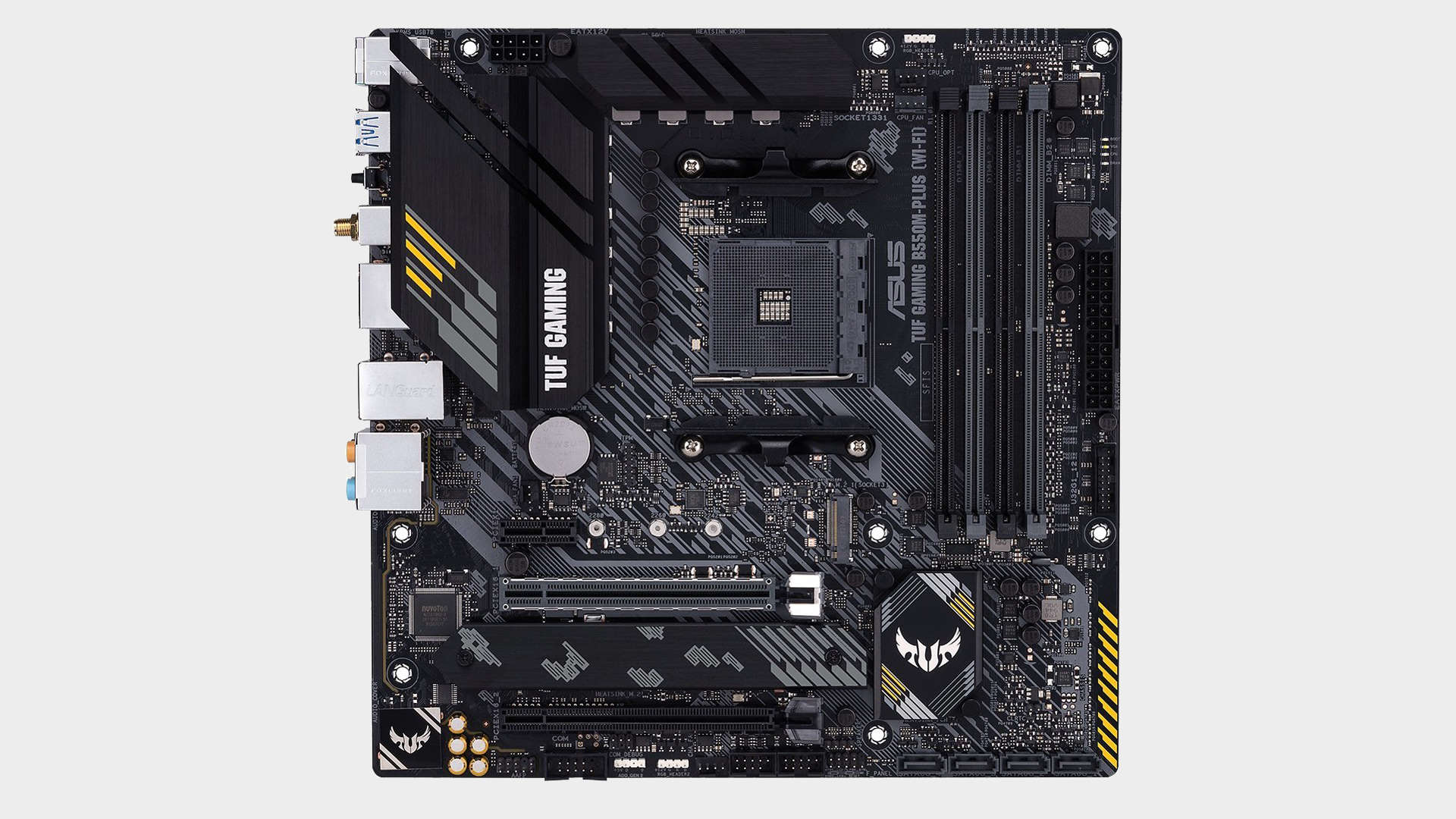
Gaming performance
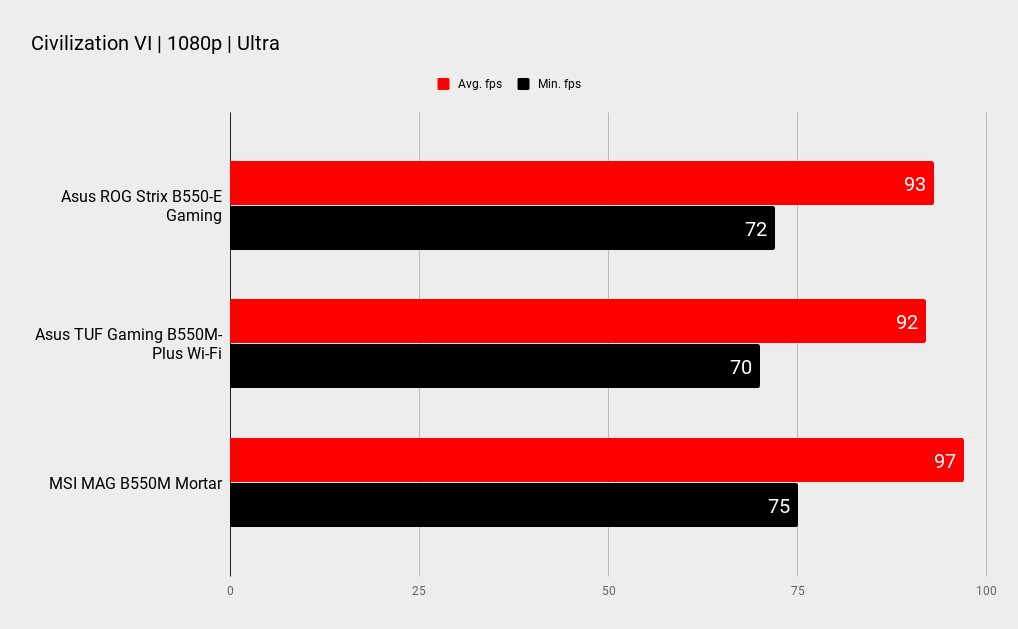
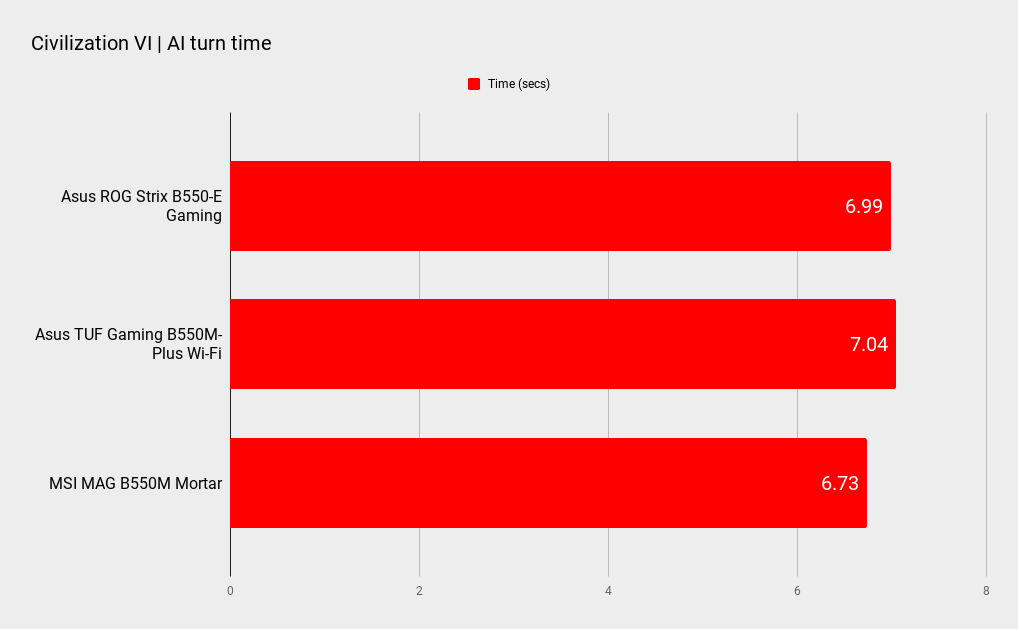
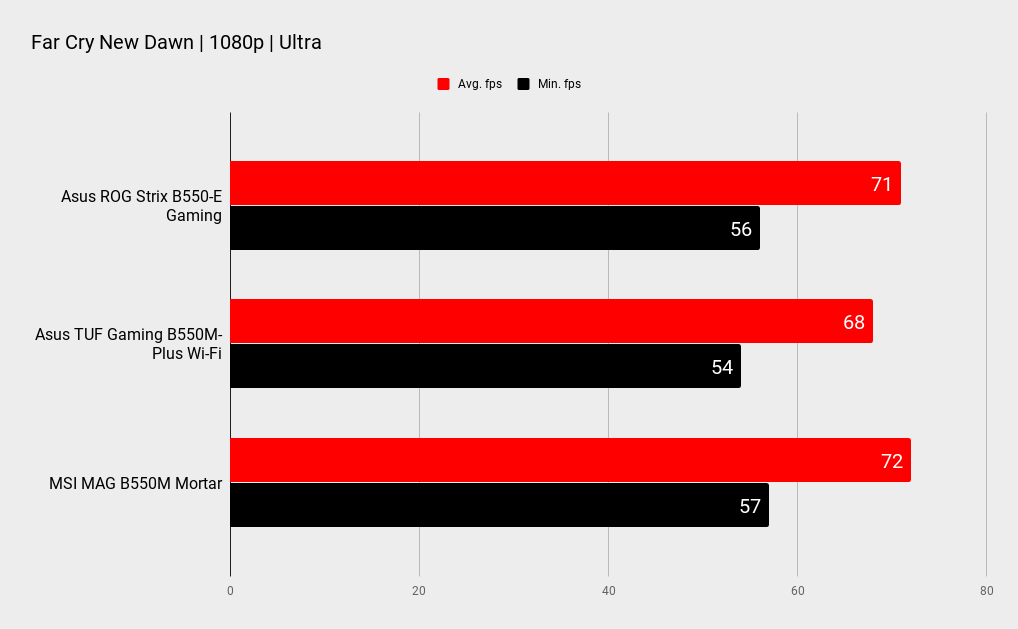
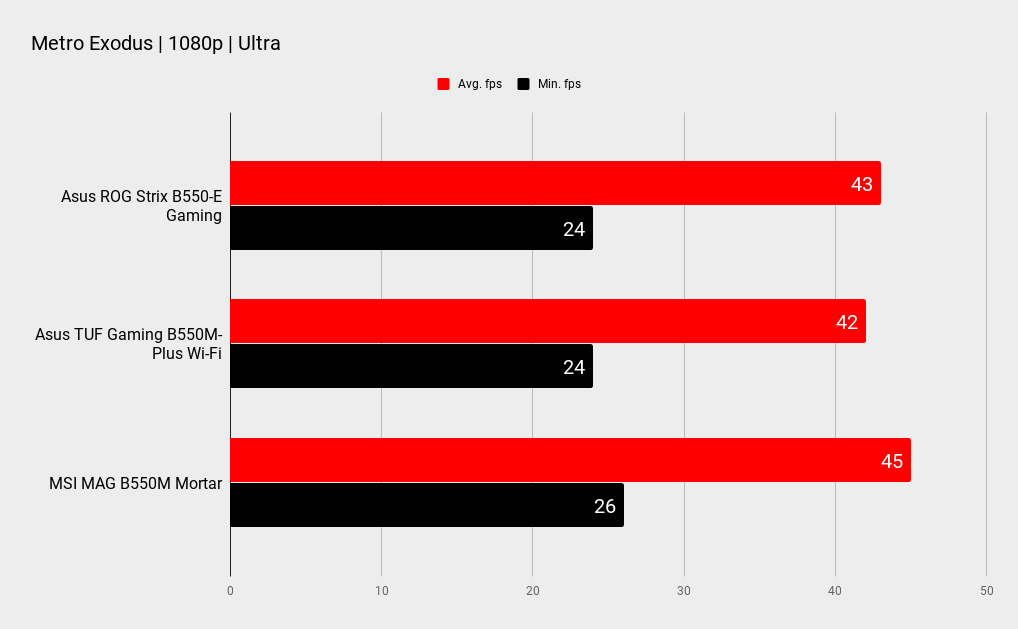
Hardware performance
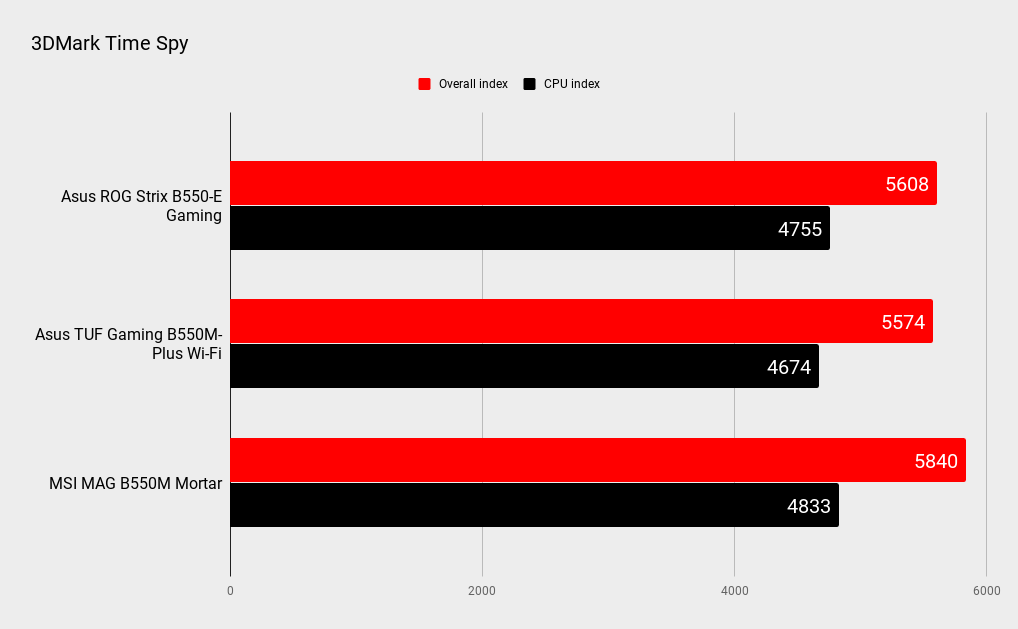
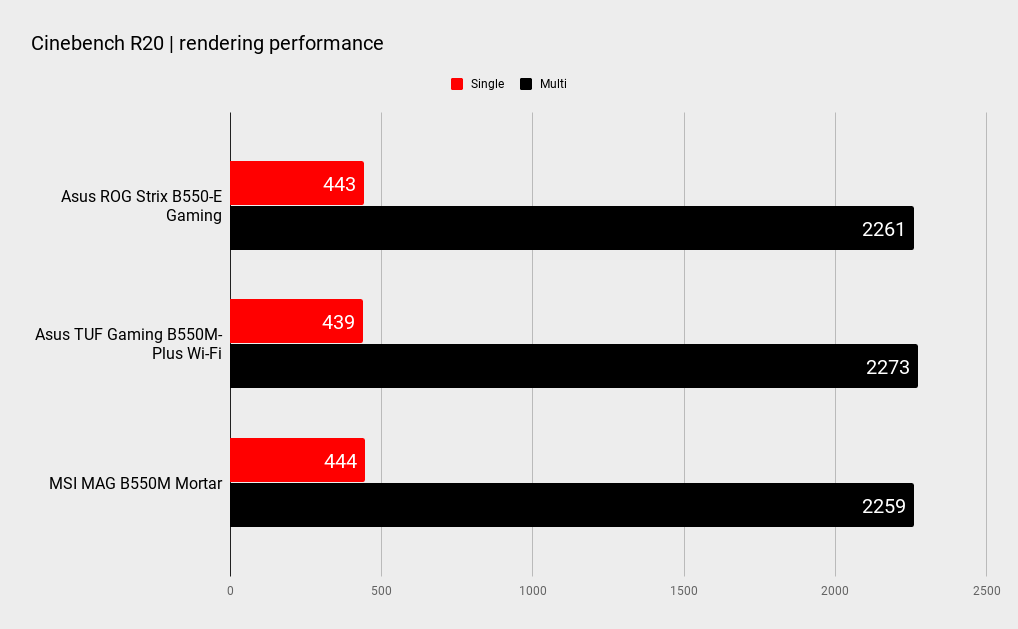
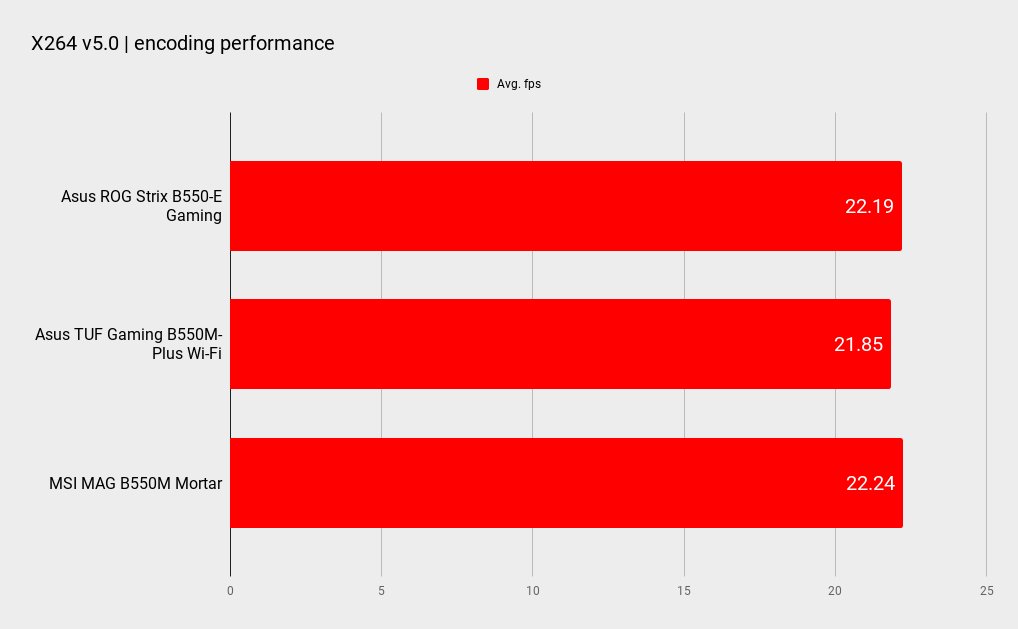
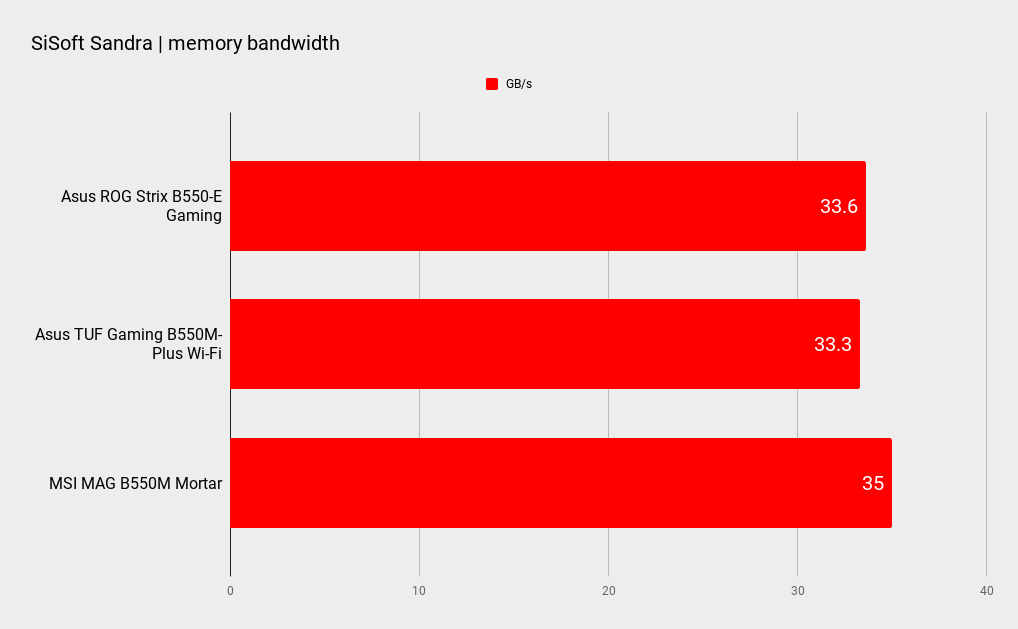
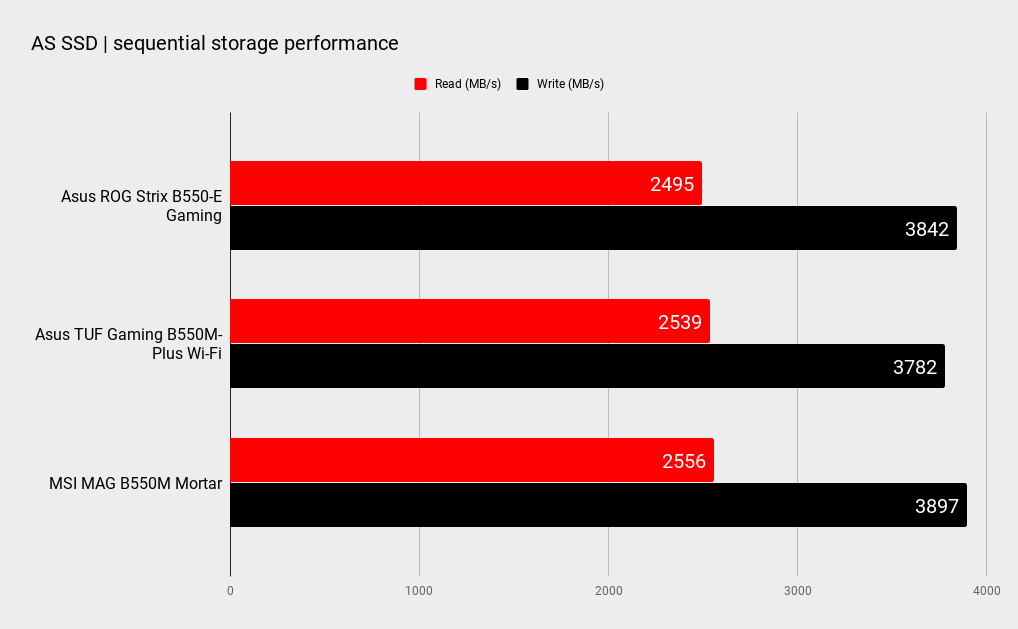
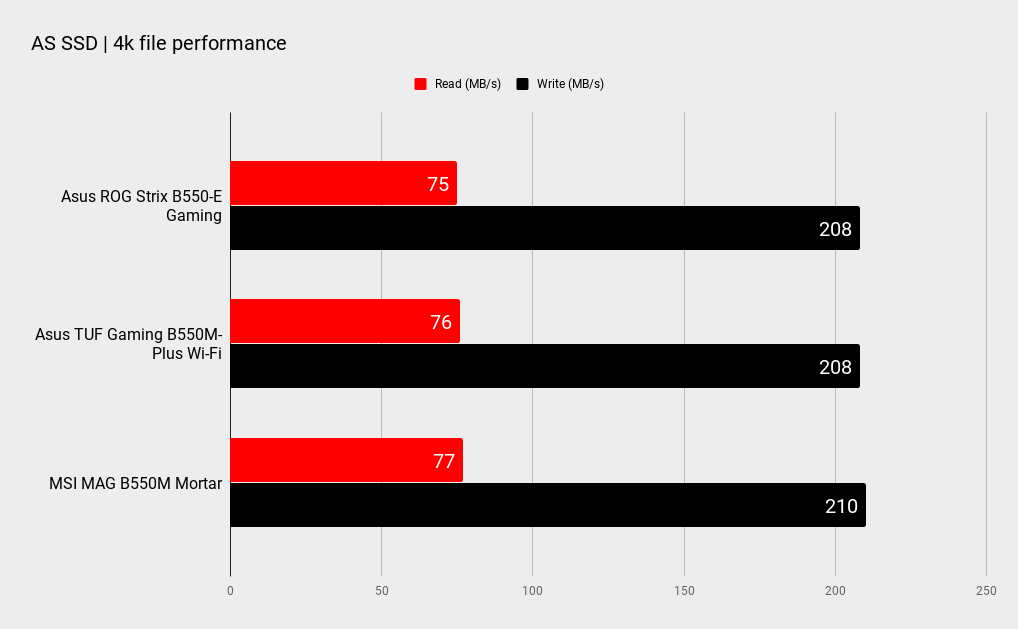
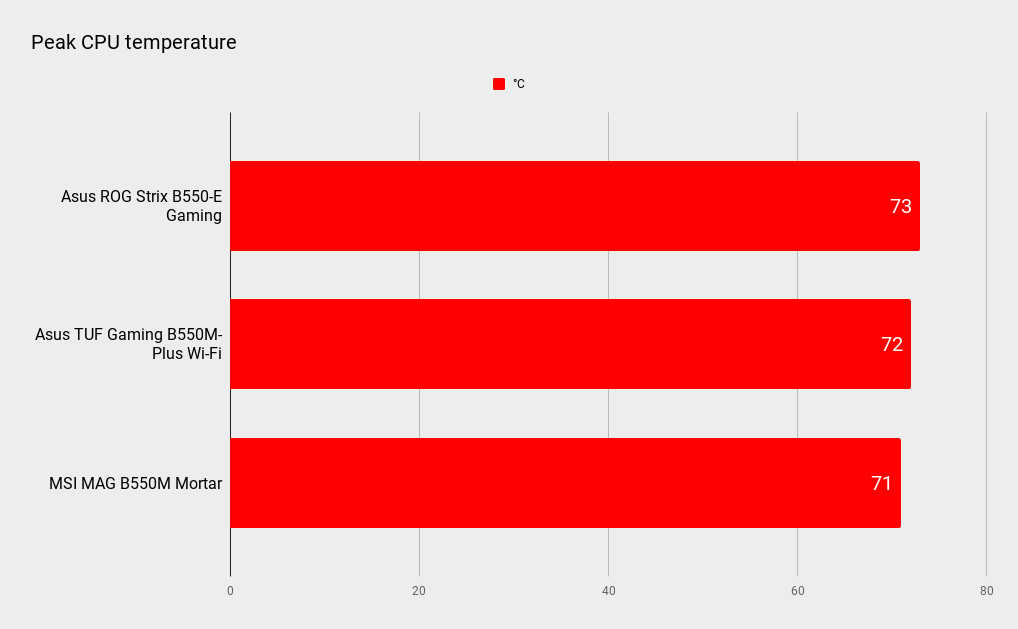
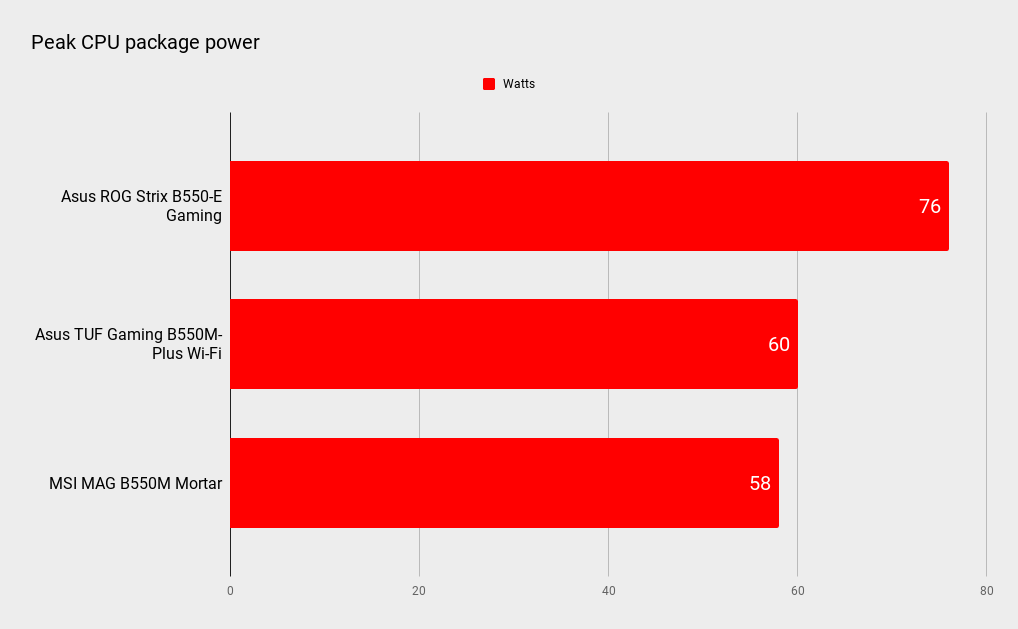
CPU - AMD Ryzen 3 3100
Memory - 16GB HyperX DDR4-3000
GPU - MSI GTX 1070 GamingX
Storage - 1TB Addlink S90
PSU - Phantec 1000W
But what about in practice? That doesn't entirely prove to be the case. At stock clocks running the AMD Ryzen 3 3100 quad-core processor, the Asus TUF Gaming B550M-Plus Wi-Fi is the slowest of our trio of early-look boards based on AMD’s new B550 entry-level chipset.
The fact that the TUF wouldn’t go beyond 2,800MHz with our 3,000MHz DDR4 tests DIMMs despite Asus’s Intel-XMP-aping DOCP profiles may have played into that outcome. But it’s also easy to overstate the significance of the performance differences in many cases. 174 points versus 179 points in Cinebench R15 single threaded performance compared to the MSI MAG B550M Mortar is surely of no tangible consequence.
On the other hand, a minimum frame rate of 42fps in Metro Exodus compared to the 45fps the MSI board enables or 70fps versus 75 fps in Civilization VI are both arguably edging into territory where you might just feel like you’re missing out. That’s quite a big gap in performance for a motherboard.
The TUF Gaming turns the tables when you factor in overclocking, however. 4.2GHz on all four cores of our AMD Ryzen 3100 test chip is easily achievable via a quick core ratio tweak and leaving the board to handle the finer details, such as CPU voltages. That matches the much more expensive Asus ROG Strix B550-E Gaming and comfortably beats the MSI MAG Mortar’s mere 4GHz overclocking ceiling.
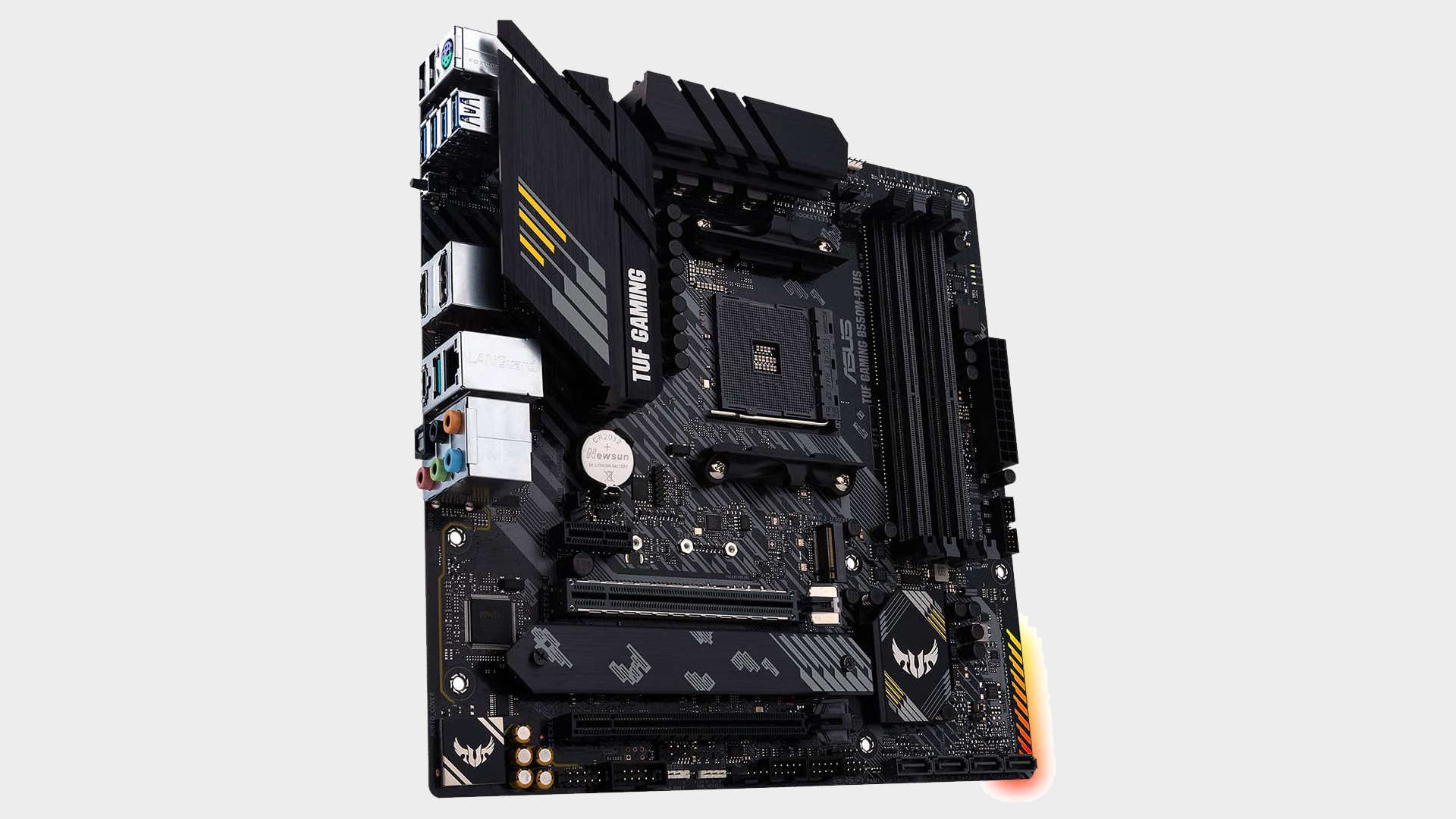

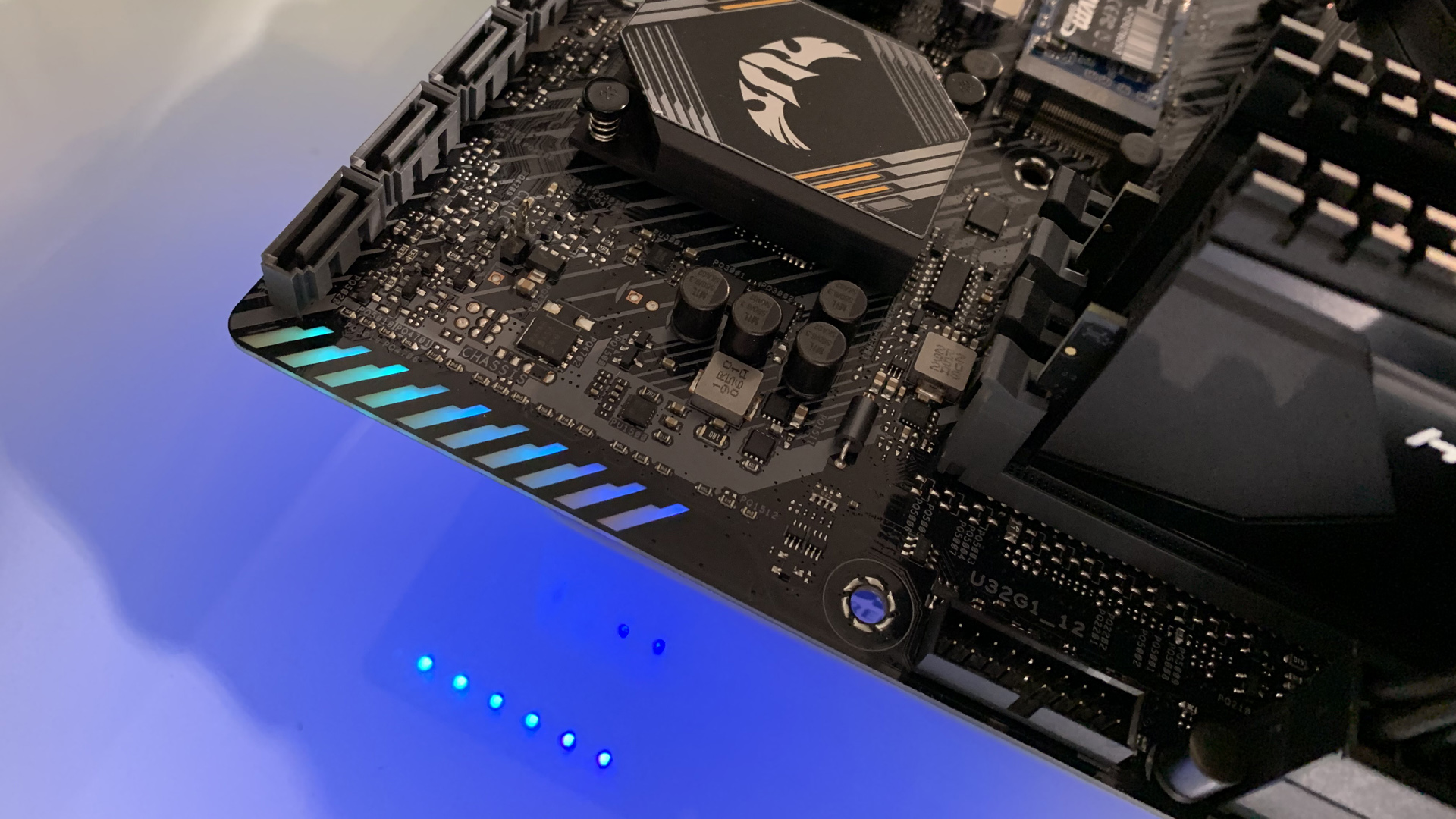
As ever, then, the Asus TUF Gaming B550M-Plus Wi-Fi is a collection of pros and cons. The feature set is plenty for most gaming needs. Yes, the B550 chipset limits bandwidth to peripherals that aren’t hooked directly into the CPU. If you want to plug in numerous ultra-fast SSDs, this isn’t the motherboard for you. But it will support one PCIE Gen 4 SSD, packs 2.5Gb ethernet plus Intel Wi-Fi 6, and most importantly a Gen 4 PEG-16 graphics port for future-proofing.
It overclocks nicely, too, and sports Asus’ familiar and full-featured BIOS menu. It has everything you really need for a decent gaming rig on a moderate budget. And yet we can’t quite forgive the Asus TUF Gaming B550M-Plus Wi-Fi it’s mediocre stock clocked performance.
In truth, we’ve yet to see the ideal B550 board. The Asus ROG Strix B550-E Gaming is probably too pricey when X570 boards can be had for less. The MSI MAG B550M Mortar lacks overclocking chops. And this Asus TUF is just far enough behind on basic performance that it’s hard to unreservedly recommend. The hunt, therefore, continues...
Asus' Micro-ATX TUF looks like all the motherboard you need for an affordable AMD Ryzen gaming rig, but mediocre performance spoils an otherwise attractive proposition.

Jeremy has been writing about technology and PCs since the 90nm Netburst era (Google it!) and enjoys nothing more than a serious dissertation on the finer points of monitor input lag and overshoot followed by a forensic examination of advanced lithography. Or maybe he just likes machines that go “ping!” He also has a thing for tennis and cars.
